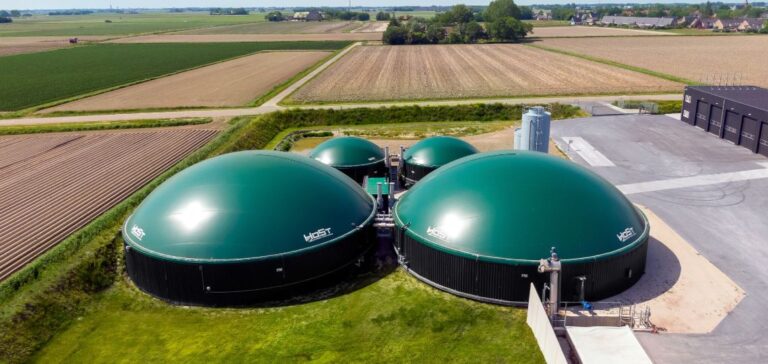Global biogas production could reach the equivalent of nearly 1 trillion cubic metres of natural gas annually, according to a new geospatial assessment published by the International Energy Agency (IEA) on May 28. This volume would represent about 25% of current annual global natural gas demand.
The study, titled The Outlook for Biogases and Biomethane, is based on a first-of-its-kind analysis of over five million potential locations worldwide. It focuses on sustainable feedstocks, such as agricultural and municipal organic waste, which can be processed without competing with food systems. These resources are particularly abundant in emerging economies, which account for nearly 80% of the identified global potential.
Mature technologies and local production
The supply chains and technologies required to produce biogas are widely available and well established. The report notes that these fuels are typically produced close to where they are consumed, using materials that are often sourced domestically. They can be used directly for heat or power generation, while biomethane—an upgraded form of biogas—can be injected into existing gas infrastructure without major modifications.
According to the IEA, these characteristics make biogases a tool to reinforce energy security while supporting local, particularly rural, economies. The report counts over 50 new public policies introduced since 2020 to foster sector development.
Persistent regulatory and economic barriers
Despite rising interest, biogas still plays a minor role in the global energy mix. Less than 5% of the sustainable potential is currently utilised. The report highlights several barriers, including administrative delays that can extend to seven years just to secure necessary project permits.
Biomethane production costs also remain higher than those of natural gas in many markets. However, the IEA’s analysis shows that up to five times the current level of biomethane output could be developed at costs equal to or lower than prevailing wholesale natural gas prices, if targeted measures such as carbon dioxide (CO₂) pricing were implemented.
An interactive tool to visualise global potential
In addition to the report, the IEA released an interactive mapping tool to visualise global biogas potential, along with regional fact sheets detailing available feedstock types and quantities. The agency aims to provide public decision-makers and investors with a concrete basis for planning sector deployment.
“The potential is particularly significant in emerging and developing economies,” said IEA Executive Director Fatih Birol. “This report highlights the additional actions that governments can take to fully tap into this energy resource.”






















